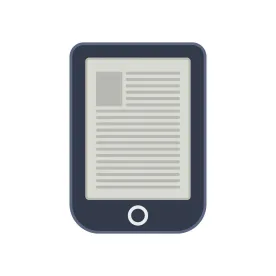The Southern District of New York recently issued an opinion that held the Internet Archive, an organization whose professed mission is to provide universal access to all knowledge, infringed plaintiffs’ copyrights when it scanned print copies of books and offered free digital copies to users of its website without the copyright owners’ permission.
Plaintiffs, Hachette Book Group, HarperCollins, John Wiley & Sons, and Penguin Random House (“Publishers”), are four leading publishers in the United States that acquired exclusive publishing rights from their authors, in both print and digital formats, including electronic copy “eBooks.”
Defendant Internet Archive (“IA”) is a non-profit organization that has compiled a digital library of millions of free books, movies, software, music, and websites. The Publishers brought a copyright infringement action against IA to challenge the means by which it offered free eBooks to its users. Over the past decade, IA has scanned millions of print books and created eBook versions that are publicly available online. Importantly, the Publishers did not authorize IA to create digital copies of the print books, and further, did not authorize IA to distribute those eBook editions on its website.
In March 2020, when the Covid-19 pandemic resulted in the closure of libraries nationwide, IA’s growth surged from approximately 2.5 million users to 6 million users over a two-year period. As of 2022, IA loaned out an estimated 70,000 eBooks to its users per day.
The Publishers’ complaint alleged that IA infringed their copyrights in 127 books that IA was unauthorized to offer as eBooks on its website. Although IA’s distribution of the eBooks on the internet was somewhat limited, in many cases only making a single eBook available to a borrower for each print copy it had purchased or otherwise lawfully received, the Publishers held the exclusive right to publish each work in eBook form. Moreover, all books protected by copyright were made available as eBooks by the Publishers either for sale in retail or via licenses to libraries.
Fair Use as Defense to Copyright Infringement
IA does not deny that it digitizes and distributes books covered by the Publishers’ copyrights. Instead, IA asserts that its eBook lending falls within the fair use defense to copyright infringement. While rooted in the common law, fair use is a statutory exception to copyright infringement. The Copyright Act of 1976 provides that “the fair use of a copyrighted work” for “purposes such as criticism, comment, news reporting, teaching (including multiple copies for classroom use), scholarship, or research, is not an infringement of copyright.” 17 U.S.C. § 107. A Court undertaking a copyright fair use analysis considers the following factors:
-
the purpose and character of the use, including whether such use is of a commercial nature or is for nonprofit educational purposes;
-
the nature of the copyrighted work;
-
the amount and substantiality of the portion used in relation to the copyrighted work as a whole; and
-
the effect of the use upon the potential market for or value of the copyrighted work.
Ultimately, the Court ruled that IA’s fair use defense failed as a matter of fact and law.
As for the first factor, the Court found that there was nothing transformative about IA’s practice of scanning the copyrighted works as eBooks and lending them to users of its website for free. The second factor also weighed in favor of the Publishers because the “dispute involves original works close to the core of copyright protection.” The third factor weighed strongly in the Publisher’s favor because IA engaged in wholesale copying of the protected works, not merely partial or excerpted text. Lastly, the fourth factor weighed in favor of the Publishers because IA’s distribution of eBook copies without a license deprives the Publishers of revenues to which they are entitled as copyright holders.
As all the fair use factors favored the Publishers, the Court determined that IA’s mass reproduction and distribution of complete copyrighted works fall squarely within the scope of the claim of copyright infringement. IA attempted to argue that the benefits of digital lending, such as widespread access to information, justified its activities. But the Court determined that the alleged benefits did not outweigh the market harm to the Publishers. The Court noted that IA remained free to scan and distribute books in its collection that are in the public domain and therefore not subject to copyright protection.
IA has issued a statement that it intends to appeal this ruling.




 />i
/>i
